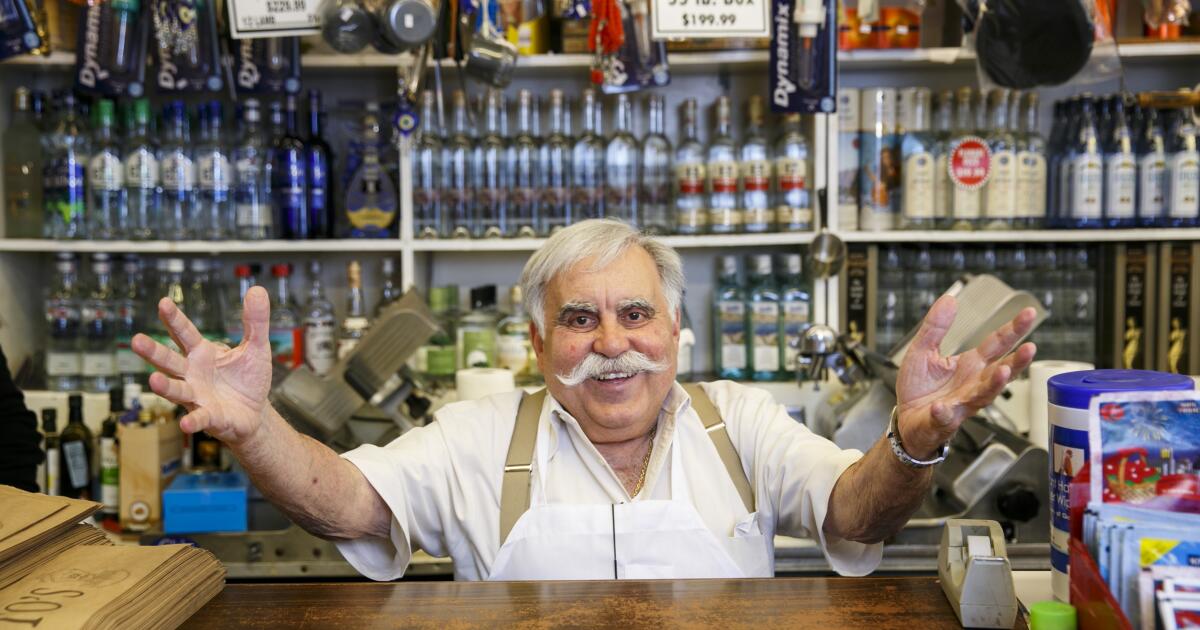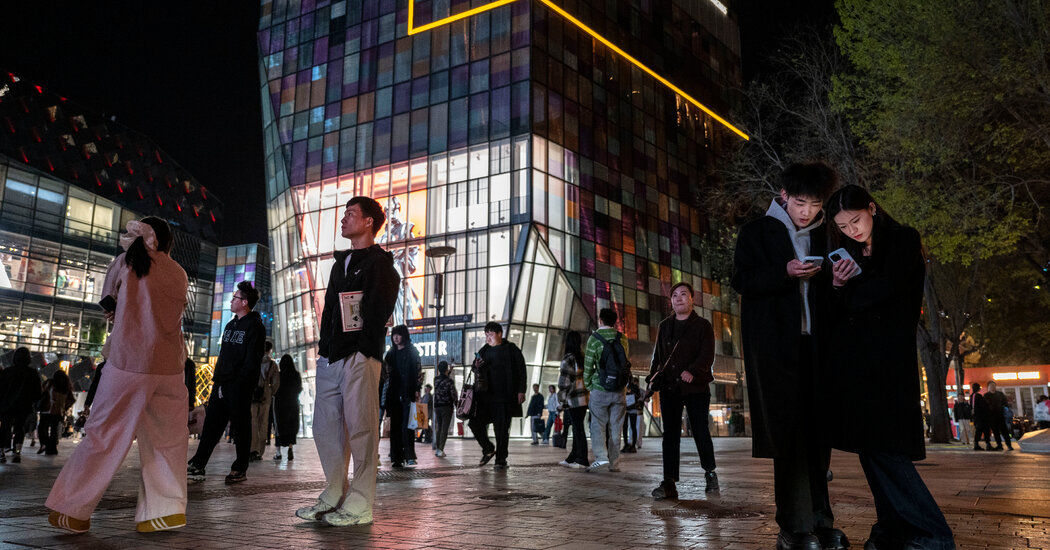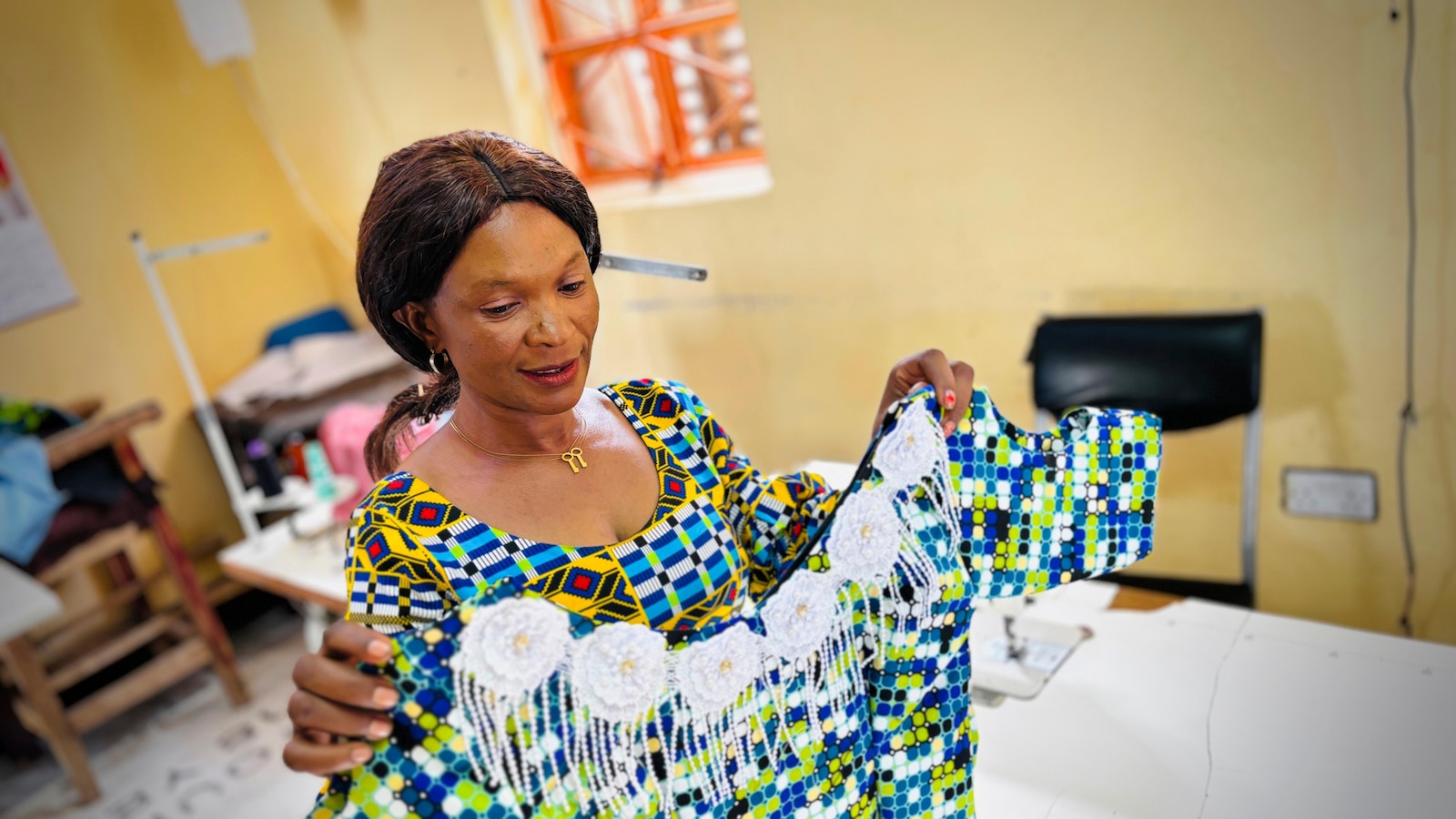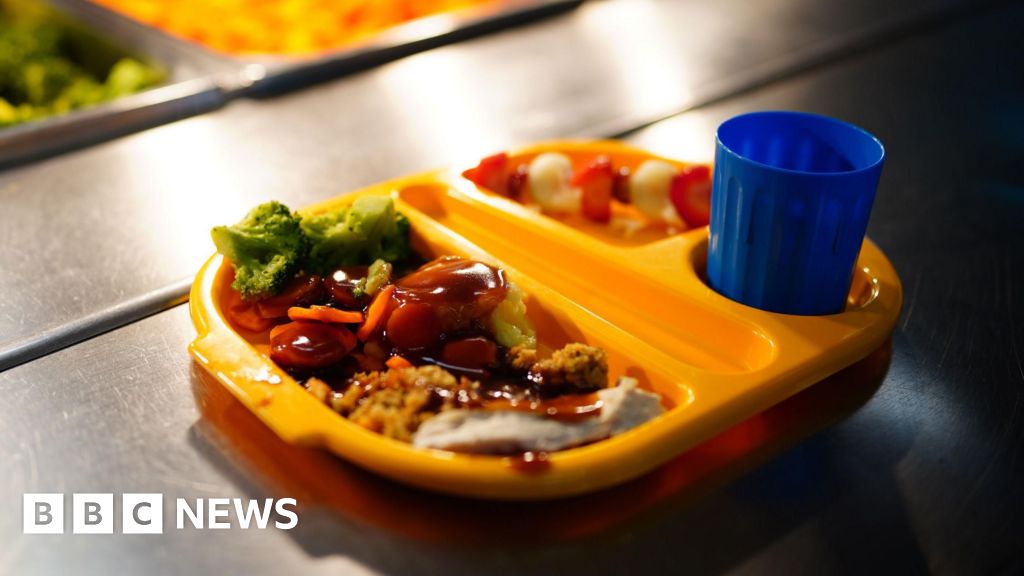
Papa Cristo’s is closing, joining growing list of struggling longtime restaurants in L.A.
A Greek institution on May 4 will serve its last flame-kissed grilled lamb, its final pillowy potatoes, its saganaki swan song. After 77 years, the family-owned restaurant Papa Cristo’s is closing, with its building listed for sale.
What began as a Greek market in 1948 expanded to a full-fledged restaurant and community staple over decades. It’s united generations of Angelenos who’ve flocked to the edge of Pico-Union for specialty goods and Greek feasts from three generations of the Chrys family. The restaurant became the unofficial heart of the Byzantine-Latino Quarter, a small historic-cultural district, along with the St. Sophia Greek Orthodox Cathedral nearby.
“It finally came to a point where we decided we’re gonna go on our terms,” said Mark Yordon, the cousin of owner Chrys Chrys, and a member of the family business for roughly 40 years. “We’re not gonna wait for a buyer to come in and say, ‘OK, I’m going to turn it into a hotel.’ ”
Yordon declined to confirm that rent increases influenced the decision to close, but Chrys told LAist that rising rent was the culprit. “The rent got too high,” he said, “and there’s nothing we can do about it. … Tenants are pawns to the landlords.”
Yordon, who works as the general manager, said the family came to the decision upon learning the building was listed for sale. The Papa Cristo’s lot, which is zoned for mixed-use or high-density residential purposes, is currently listed at $5.2 million.
Its listing agent could not be reached for comment.
“The whole corner is for sale, and it’s never been for sale,” Yordon said. “It belonged to the same Greek family that had associations with Chrys’ dad and the current [lot] owner’s grandfather. It goes way back, to 1948.”
An L.A. institution
Sam Chrys founded what would become Papa Cristo’s as C&K Importing Co. in 1948. The market sold imported Greek foods and wine, and continues to do so today alongside broader Mediterranean and European specialty items.
In 1968, Chrys Chrys purchased the business from his father, and eventually took over an adjacent burger stand to transform it into Papa Cristo’s Taverna.
Annie Chrys, left, Chrys Chrys and Mark Yordon at Papa Cristo’s in 2016.
(Marcus Yam / Los Angeles Times)
The generous portions and convivial setting helped solidify Papa Cristo’s as a decades-long community staple for the neighborhood and far beyond it, and in 2010 Chrys’ youngest daughter, Annie, joined the trade.
The last few years haven’t been as easy for Papa Cristo’s, which like so many local businesses saw steep revenue downturns during the pandemic. But the market allowed for some sales to continue, and the restaurant’s catering operation — which Yordon primarily oversees — helped keep the family business afloat and its staff employed.
In the years following, inflation led to slimmer profit margins. Now with tariffs on the horizon, Yordon mused, “maybe this was a good time to go.”
Since the news broke, throngs of fans streamed into the restaurant and market. Hundreds of online comments are shouting for someone to save the business.
There could be a future where Papa Cristo’s opens in a smaller location elsewhere, though Yordon said that fate will be determined by his cousin and nieces. It’s also possible that Chrys, now 80, will take this opportunity to retire.
“He’s kind of getting to his limit,” Yordon said. “Heavy lies the head that wears the crown.”
But a public statement from Chrys on Thursday hinted that this might not be the end of Papa Cristo’s. “After 77 years on the corner of Pico and Normandie, it’s time for me to hang up my apron and for us to say goodbye (for now),” he posted to the restaurant’s Instagram page, adding, “P.S. The story of Papa Cristo’s doesn’t end here — exciting things are coming.”
More classic restaurants struggle
Some of the city’s longest-running and most cherished restaurants have announced a struggle to survive, or closed outright in the last few weeks. Chili John’s in Burbank, which opened in 1946, recently launched a fundraiser to help keep the business afloat. An owner last month said that without an increase in sales they could close in the coming months.

The early dinner special at Du-Par’s in the Original Farmers Market.
(Dania Maxwell / Los Angeles Times)
Recently Du-Par’s CEO said the 1938-founded diner famed for its hotcakes at a corner of the Original Farmers Market is also struggling. Frances Tario told “L.A. in a Minute” podcaster Evan Lovett that immigration crackdowns, increasing egg prices and a loss of business from the city’s January wildfires have hurt one of the city’s oldest surviving restaurants. Tario could not be reached for comment.
Last week decades-old French restaurant Le Petit Four closed its doors for good amid a string of West Hollywood shutterings. Last month, after 101 years of service, the Original Pantry closed and left Angelenos bereft.

Customers line up outside in the rain for a table at the Original Pantry Cafe in February.
(Nick Argro / For The Times)
Newer restaurants are also closing at a rapid clip, with a number of notable closures in the first half of the year that included Guerilla Tacos, Cosa Buona, Sage, and Wexler’s Deli in Grand Central Market.
“It’s been a real avalanche,” said local historian and tour guide Kim Cooper. “Many, many factors are piling up on top of each other and people are making very hard decisions.”
Cooper operates walking-tour and historic-preservation-minded company Esotouric with her husband, Richard Schave. The two of them have been patrons of the restaurant for years.
Especially given the rash of closures and struggles of some of the city’s oldest restaurants, Schave and Cooper hope to see more local and state programs that aid legacy businesses and provide support before it’s too late.
The pair suggested two potential scenarios that could save the restaurant. Maybe, they said, new state law SB 4, which is designed to help faith-based organizations build affordable housing, could help the surrounding Greek Orthodox community with deep ties to Papa Cristo’s to develop the lot.
Or, they said, history-minded restaurateurs could purchase the business from the Chrys family with the promise of ensuring its survival, as Marc Rose and Med Abrous did for Fairfax restaurant Genghis Cohen: an operation now undergoing its own land sale and relocation.
“By the time people who love these places hear that they’re in trouble, it’s often gotten too far and they’re announcing a closure,” Cooper said. “It feels like Los Angeles is disappearing. We’ve got to save it.”










